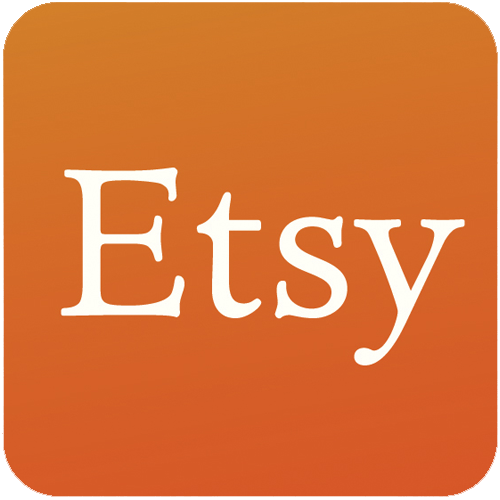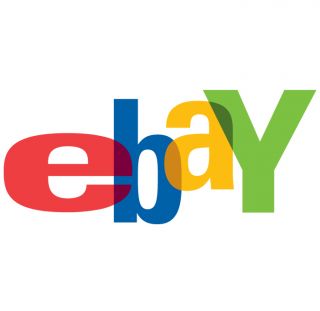
On Starting A $3.5K/Month European-Style Pub Crawl Business In Denver
Hello! Who are you and what business did you start?
Hi! My name is Tyler and I’m the founder of Denver Pub Crawl. In most ways, it is what it probably sounds like: a pub crawl. We do things a bit differently than what I’d imagine you might have experienced in the US though; read on for more!
We market primarily to tourists visiting Denver, but also locals, including the 100k+ college students in the region, looking for a fun, unique night out on the town.
Our first official crawl date was Friday, February 7, 2020. As you could probably guess, that didn’t last long considering the climate of 2020. Three crawls later, we were forced to shutter operations for about three months. Thankfully though, we were able to open our doors again come June, and we were off to the races from there. We sold out seven of the last eight crawls before having to close due to COVID regulations again in November 2020.

What's your backstory and how did you come up with the idea?
As of the time of this writing, I’ve been to 35 countries outside of the U.S. I’ve been to a pub crawl in almost everyone. From hostel crawls in Vietnam to ruin bars in Budapest, everyone does something different. Here in the U.S., though, we have big, multi-hundred to thousand-person plus crawls; most of them are also themed or centered around holidays (i.e. Santa or Christmas, Thanksgiving, St. Paddy’s Day). In Europe and most of the rest of the world, you’re looking at 10-15 people to maybe 75 maximum, and the crawls are usually regular (i.e. every Friday and Saturday). Those are big differences.
Though I made it no certain kind of ‘mission’ to take note of what kind of intricacies or operations were happening while I was on crawls while traveling, (even with alcohol involved) it became apparent that I’d subconsciously been keeping track of those types of things as soon as I moved to Denver, Colorado in 2018.
Within a few weeks of arriving in the city, I had found a neighborhood called LoDo, or Lower Downtown. About six months later I decided to move downtown, just outside of LoDo, to be closer to my 9-5 at the time, a sales position at a vacation rental management company. Naturally, I spent more and more time going out and exploring my new neighborhoods, and it wasn’t long before I knew LoDo would be our first launch site for the Denver Pub Crawl.
Take us through the process of designing, prototyping, and manufacturing your first product.
Because of Americans’ perceptions of what an “American-style” pub crawl was, I knew it wasn’t going to be an easy pitch to potential partner bars. Especially in cities without similar concepts, the entire premise of doing something like a pub crawl every week seemed strange and foreign to most of the bar managers and owners I started talking to.
When you find a good business relationship, latch on to it, nurture it, support it, and let it grow. Even though the past year has been tough, it’s also shown us who truly wants to see win-win situations blossom and who’s out for themselves.
I knew that it would work; I’d seen it with my own eyes all over the world. But I also knew I had to get the buy-in of the local community as well. Since I was creating a system - a machine - I had to build a prototype. Building a prototype involving people - and physically moving these people from one place to the next all while coordinating with multiple venues in a short period of time - was a logistical puzzle in and of itself.
Like most things that are created, it started with research for me. I spent weeks visiting and going to bars, trying to get a feel for their atmospheres and hoping to determine if they’d fit in well with the experience I was aiming to provide. I even took a date on a “mini pub crawl” one night; we ended up in 11 different bars in the span of 4-5 hours. (Market research + date = efficiency, right?)
In October 2019 a friend of mine and I decided to pull the trigger. All of the logistics were planned and an itinerary was set. We organized a “birthday party” on Eventbrite and started inviting our friends. To be a bit covert on our first test run, we didn’t tell any of the bars we had scouted as top prospects that we were coming. All in all, we had about 35-40 paid tickets sold pre-event. By the end of the night, we were walking through the streets of downtown Denver with close to 55-60. It was a success, and Denver Pub Crawl was born.

Describe the process of launching the business.
We waited to act on most of the formalities of creating a business (i.e. incorporating, legal paperwork, website, etc.) until after the “birthday party” test run; the last thing we wanted was to move forward with something we didn’t know worked. That also being said, we didn’t feel like we didn’t need to continue to launch “test runs” to prove the process or concept. From that point forward, the focus solely turned to fine-tuning and improving the overall experience.
Within a matter of weeks, we had all of the legal boxes checked, bank accounts set up, and a website built and launched. (We decided to go with Squarespace for its simplicity, though this was largely meant to be a placeholder of a site from the beginning.)
For us as a service - or experience, rather - we knew exposure and awareness were going to be top priorities. Because Denver’s a city that sees visitors year-round, it was also important for us to try to get ourselves in front of tourists as much as we could. SEO being a sort of long game, our short-term goal became getting onto several different ticketing and sales platforms (Airbnb, Groupon, Eventbrite, and Nightout).
Unfortunately for us, our first official crawl was February 6, 2020, which meant we had exactly one month of operations before Denver moved to a stay-at-home order due to COVID. And so the rollercoaster-like ups and downs of starting and running a people-centric, event-based company during an international pandemic began.

Since launch, what has worked to attract and retain customers?
If 2020 showed us anything, it was persistence. We ended up having to shutter operations three different times in the calendar year. Because people often purchase tickets and make plans in advance, we found that the process of starting up ‘the machine’ only to turn it off again was more taxing and difficult than imagined.
Even though that, we continued building relationships with partner bars and operated when and how we could (safely and adhering to all government regulations and guidelines, of course). By the fall of 2020, we were seeing more demand than we or our partner bars could handle. Having to turn customers away is never fun to do, but it’s a good problem to have.

How are you doing today and what does the future look like?
With operating costs of a few hundred dollars per month, we’re fortunate to not have a rent or mortgage hanging over our heads. This business model design was also intentional though, and I’m proud to say it’s proven to not only work but work exceptionally well and efficiently. Like many events-based companies, our fixed costs are low and relatively predictable, and because our operations can scale around variables like capacity and number of attendees, our profit is almost immediately scalable.
We’ve grown our team from two part-time members to a team of four, including a paid intern (something I’m personally very keen on), and a roster of hosts to facilitate the crawls themselves.
For us, answering the question of what the future looks like is simple: continuing to push, grow, and create. We’ve been working hand in hand with many of our partner bars to create offshoot experiences directly correlating with feedback from our customers or opportunities we see in the market. Immediately, we’re focusing on the Denver market and surrounding areas. By the end of 2021 though, we expect to expand to other cities in the midwest and on the coasts. Our business model creates connections; nearly every crawl we host we have participants from outside of Denver visiting for the weekend, and almost every crawl we have someone from one of those cities says something along the lines of, “You *have* to bring this to my city!”

Through starting the business, have you learned anything particularly helpful or advantageous?
I taught students how to start companies as a sort of professional mentor or coach/adjunct professor at St. Louis University for five years after graduating. Pitching and solidifying how you communicate your mission, vision, and what you want out of a conversation was something I practiced every day. When you’re pitching something people are familiar with, it’s usually much easier to talk about in a way that can be clear, concise, and understandable. When that’s not the case, as it was with me talking to bars about my “European-style” pub crawl, your strategy changes; you have to adapt your messaging or no one will listen to you.
Secondly, the value of relationships and open communication, once that relationship is established, is crucial. I’d consider myself to be a ‘people person,’ one of the reasons I started a company like this. When someone you’re working or partnering with isn’t, it can create friction. As a business owner, you assume that others are on similar wavelengths or think similarly to you, that they’re mature and can work things out like ‘adults.’ That’s not the case, and it’s something I’m still continuously surprised with.
When you find a good business relationship, latch on to it, nurture it, support it, and let it grow. Even though the past year has been tough, it’s also shown us who truly wants to see win-win situations blossom and who’s out for themselves. To this day, after nearly a year of quite literally helping them keep their doors open, we still have partners who cringe at the thought of offering us exclusive drink discounts. It’s a constant back and forth and ongoing evaluation of who’s the right fit for both the short and long term.
What platform/tools do you use for your business?
As mentioned earlier, we built out our initial website on Squarespace, though we’ll most likely be migrating to something a bit more robust like Webflow shortly.
We currently use Eventbrite, Airbnb, Groupon, and Nightout as our main ticket sale partners. Instagram and Facebook are our main social platforms currently, and we use a few different tools like Later.com and Canva for social distribution and creation for those platforms. Asana is our go-to project planning and management center, and we use Mailchimp for our email campaigns. Willow.co was also an absolutely fantastic social tool that helped us get up and running that I’d recommend to solo-founders or small teams, especially those without an in-house social manager.
A friend of mine also told me about Stacklingo.com as I was signing up for some of our software, which ended up being a huge plus. As a low-budget startup impacted the way we were by COVID, it saved us both significant time and dollars getting the discounts we did.
All in all, we run quite simple and streamlined processes. I think our entire tech stack will be drastically different 6-12 months from now as we continue to grow.
What have been the most influential books, podcasts, or other resources?
Personally, I’m a huge fan of How I Built This with Guy Raz and business classics like One Thousand Ways to Make $1,000. When I was younger I absorbed every article, podcast, and YouTube short like a sponge. Over time, I actually largely stopped listening and watching things like this after discovering that they were sometimes creating more indecision and inaction than really doing.
One reason I love older books is that the information and stories contained therein are often timeless in moral but outdated enough to make you think about how you could apply the same concepts to current, modern times.

Advice for other entrepreneurs who want to get started or are just starting?
I’d largely consider myself to be an ‘expert generalist,’ a term I took from Charlie Munger, Warren Buffet’s right-hand man: “someone who has the ability and curiosity to master and collect expertise in many different disciplines, industries, skills, topics...and being able to draw on that diverse knowledge base to recognize patterns, connect dots, and improvise on situations.”
I credit the creation and seeing the opportunity for something like Denver Pub Crawl to that alone. When I was traveling and at a pub crawl, did I know or even think I’d be doing this years later? Of course, not. Develop the ability to observe, collect information, process that information, and recognize and create an opportunity when you see it.
Are you looking to hire for certain positions right now?
100%! As mentioned above, we’re looking at expanding to several US cities by the end of the year. If you’re someone who has a good pulse or connections to the nightlife clusters in your community or city, we should talk.
We’re also always looking for fun, energetic, charismatic, hospitable, and outgoing hosts to lead our crawls.
Where can we go to learn more?
If you have any questions or comments, drop a comment below!

Download the report and join our email newsletter packed with business ideas and money-making opportunities, backed by real-life case studies.

Download the report and join our email newsletter packed with business ideas and money-making opportunities, backed by real-life case studies.

Download the report and join our email newsletter packed with business ideas and money-making opportunities, backed by real-life case studies.

Download the report and join our email newsletter packed with business ideas and money-making opportunities, backed by real-life case studies.

Download the report and join our email newsletter packed with business ideas and money-making opportunities, backed by real-life case studies.

Download the report and join our email newsletter packed with business ideas and money-making opportunities, backed by real-life case studies.

Download the report and join our email newsletter packed with business ideas and money-making opportunities, backed by real-life case studies.

Download the report and join our email newsletter packed with business ideas and money-making opportunities, backed by real-life case studies.
















